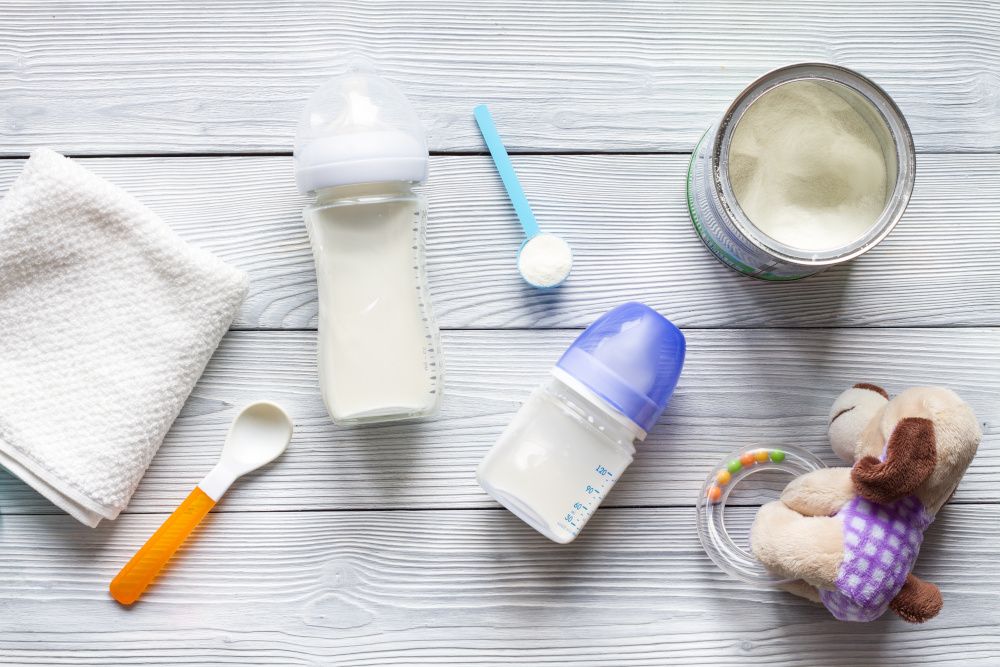DSM’s 3-FL HMO ingredient for early life nutrition approved in United States, Australia
FDA issued a “no questions letter” responding to DSM’s GRAS notification, while Australia’s Therapeutic Goods Administration included 3-FL in the latest update to its list of permissible ingredients.
Royal DSM (Parsippany, NJ) announced approval of its newly developed human milk oligosaccharide (HMO) 3-fucosyllactose (3-FL) for early life nutrition and conventional food applications in the United States and Australia. In the U.S., FDA issued a “no questions letter” in response to the company’s Generally Recognized as Safe (GRAS) notification for the ingredient. In Australia, the Therapeutic Goods Administration (TGA) included 3-FL in the latest update of its Therapeutic Goods (Permissible Ingredients) Determination.
In Australia, inclusion on the Therapeutic Goods (Permissible Ingredients) Determination means that 3-FL can be included “as a complementary medicine ingredient in listed medicines, such as dietary supplements,” DSM’s press release states. Because DSM was the first HMO manufacturer to apply to add 3-FL to listed medicines in Australia, the company says it “has secured exclusivity for this use for a period of two years.”
The company’s press release states that “These latest regulatory approvals for DSM strengthen its position as a leading end-to-end partner in the HMO space and open new opportunities for early life nutrition and conventional food innovation in the U.S. and dietary supplement developments in Australia.”
DSM also points to the usage levels approved for its ingredient. In the U.S., it says, “the maximum permitted use level of DSM’s 3-FL HMO is 0.75 g/L in non-exempt term infant formula and 0.90 g/L in formula and drinks for young children as consumed—nearly twice as high as the maximum use level that is GRAS in the U.S. for other 3-FL ingredients in the same food categories.”
It continues: "The greater use level was authorized by the FDA as a result of DSM’s recent analysis of HMO concentrations in global pooled (secretor and non-secretor) human milk by lactation stage. It has previously been demonstrated that 3-FL concentrations increase over the course of lactation, whereas concentrations of most other HMOs decrease over time. However, DSM’s review specifically reports that 3-FL concentrations are already increased two-fold from colostrum to three-month mature milk. Thus higher levels of DSM’s 3-FL in infant nutrition products were determined to be GRAS as these provide formula-fed infants with nutrition that is closer to the composition of breast milk over the course of lactation, independent of secretor status."
Meanwhile, in Australia, the ingredient is recommended for oral use at a maximum daily dose of 2 g for infants and young children aged 0-3 years and 5 g for individuals 4 years of age and older.
“HMOs are a powerful emerging ingredient capturing increasing attention across the health and nutrition space—especially in the infant nutrition market,” said Christoph Röhrig, head of HMO regulatory at DSM, in the press release. “There are more than 150 identified HMOs in human breast milk, and what’s interesting is that the science behind these unique nutrients is only just emerging. The discoveries have been incredibly positive so far, but there is still a lot to be uncovered regarding the potential health benefits and applications of HMOs—which is extremely exciting! Consequently, it’s anticipated that HMO solutions will continue to breakthrough onto the market as the industry learns more about the role these ingredients play in human health.”
Prinova acquires Aplinova to further increase its footprint in Latin America
April 7th 2025Prinova has recently announced the acquisition of Brazilian ingredients distributor Aplinova, which is a provider of specialty ingredients for a range of market segments that include food, beverage, supplements, and personal care.











